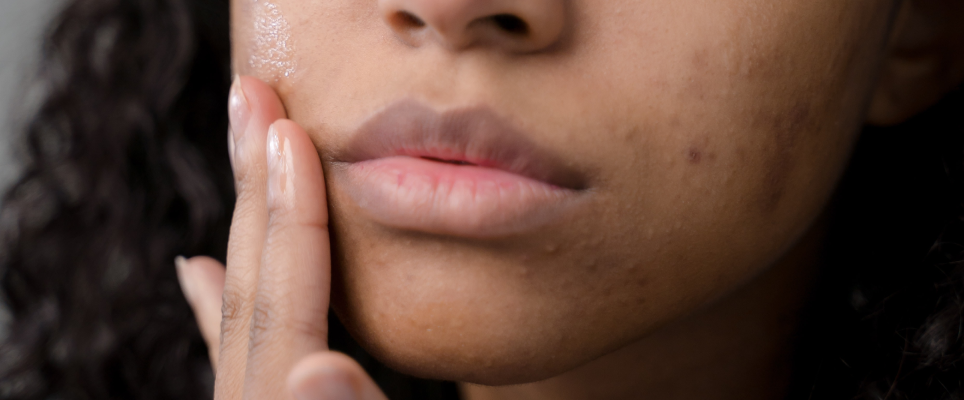We have already mentioned that hormones (specifically androgens) are the driving force behind hormonal acne. But why do some women get it while others don’t? We all have hormones, right?
When our hormones are optimally balanced, we’re less likely to experience hormonal acne breakouts. Even as we experience hormonal changes throughout the month or during different periods of our lives, our hormones can still remain balanced as they change. Problems tend to arise only when one or more of our hormones dip too low or spike too high. Here are some of the events that are associated with a hormonal fluctuation in females:
- Puberty
- Pregnancy
- Menstruation
- Menopause
There are also other potential causes of mild to severe acne in women, such as starting and stopping birth control or other types of oral contraceptives. Birth control pills are known to cause moderate acne in some women. Any type of oral medication that manipulates the delicate balance of our female hormones can lead to acne symptoms.
Unbalanced hormones (particularly androgen hormones) can get in the way of our clear skin goals. Changes in androgen hormone levels can cause our skin cells to produce more oil than they normally would. Excess oil from the sebaceous glands can combine with dead skin cells and clog the pores.
Polycystic ovary syndrome is another potential trigger for adult acne. This condition is still not entirely understood, but it is marked by menstrual irregularities, hormonal acne, insulin resistance, and hair loss or excess body hair growth.
Other important causes of hormonal acne include genetics, gender, and acne-causing bacteria. One study shows that half of adult acne vulgaris patients have at least one family member with acne. Women are also much more likely to experience acne vulgaris breakouts than men. Finally, there are certain types of bacteria that can get into the skin cells or hair follicles and cause inflammation that leads to pimple formation.


